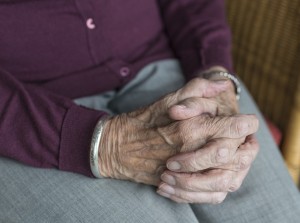Physio Health Advice > Rheumatoid Arthritis
What is it?
Rheumatoid arthritis is a type of arthritis classified as an autoimmune disease. Autoimmune disorders are conditions where the immune system of the body mistakenly attacks healthy tissues. This process of inflammation, the bodies defence system against injury and infection can damage joints and cause deformity over a long period of time. Unlike osteoarthritis, which usually affects larger joints that are involved in weight bearing, rheumatoid arthritis can affect many joints at the same time, with smaller and larger joints affected equally.
What are the symptoms?
Rheumatoid arthritis is a chronic disease, characterized by periods of remissions and flare-ups. During a flare-up, joints might become red, hot, swollen and painful. During a remission a patient might have few symptoms, however over many years, these flare-ups can degrade and deform joints, causing them to lose function and the muscles around them to weaken.
The symptoms of rheumatoid arthritis vary from mild to severe and as mentioned, can fluctuate significantly over time. As movement can help to reduce swelling caused by inflammation, pain can actually increase as joints are rested. A person with rheumatoid arthritis may complain of pain and stiffness that is worst when waking and may take 1-2 hours to subside.
What are the causes?
While rheumatoid arthritis is known to be a process of autoimmune dysfunction, the trigger that causes the immune system attack healthy tissues is unknown. In some cases, a virus may trigger the onset of the disease. There is evidence that women have a stronger immune system than men, and a downside of this is that they are more prone to autoimmune disorders, as is the case with Rheumatoid Arthritis.
Other risk factors associated with rheumatoid arthritis include a family history of rheumatoid arthritis, obesity and smoking.
How can physiotherapy help?
While there is no cure at present for the disease process that causes rheumatoid arthritis, there are treatments that can improve the patient’s quality of life and help to manage the symptoms. The first line of treatment for rheumatoid arthritis is medication particularly, anti-inflammatory medications. Change in lifestyle and diet are also advised.
The objectives of physiotherapy treatment for rheumatoid arthritis are to improve joint mobility, increase strength, restore the function of the affected joints and to maintain the level of activity of the patient. Physiotherapy treatments include heat or cold therapy, hydrotherapy, therapeutic exercises, pain management, manual techniques and patient education. Splinting may be done to protect joints from further damage. Patient education is an important part of the treatment so that the patient is knowledgeable about his/her disease, what to do and not to do.
All of these treatments can help reduce the potential long-term disabilities caused by rheumatoid arthritis. You can make an appointment to speak to one of our physios about rheumatoid arthritis by clicking here.


